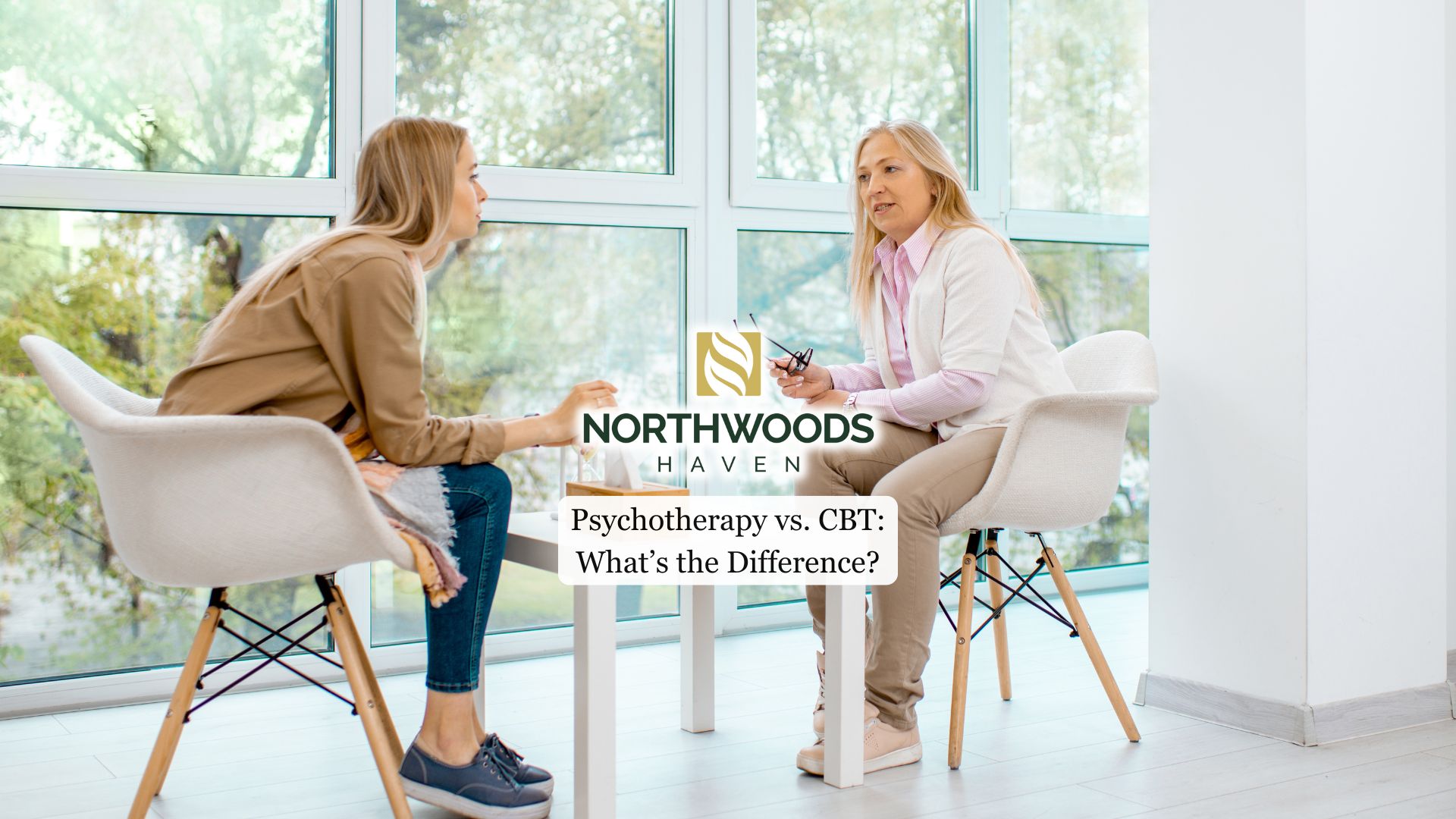Choosing the right approach to mental health treatment can be overwhelming, especially when faced with different therapy options. Psychotherapy and cognitive behavioral therapy (CBT) are two widely used treatment methods, but they differ in their techniques, focus, and outcomes.
Knowing these differences can help individuals struggling with substance abuse and co-occurring mental health issues make informed decisions about their recovery journey and choose the therapy best suited to their needs.
What is Cognitive Behavioral Therapy (CBT)?
Cognitive behavioral therapy (CBT) is a structured, evidence-based form of psychotherapy that focuses on identifying and modifying negative thought patterns and behaviors. Unlike traditional psychotherapy, CBT is goal-oriented and designed to provide individuals with practical coping strategies to manage specific mental health conditions, including addiction.
CBT is based on the idea that thoughts, emotions, and behaviors are interconnected. By challenging distorted thoughts and replacing them with healthier alternatives, individuals can improve their emotional responses and overall mental well-being.
This therapy is particularly effective for conditions such as anxiety disorders, depression, obsessive-compulsive disorder (OCD), post-traumatic stress disorder (PTSD), and for treating addiction because it helps individuals recognize triggers, develop healthier coping mechanisms, and prevent relapse. CBT is typically short-term, with sessions ranging from six to twenty weeks, depending on the individual’s needs and progress.
What is Psychotherapy?
Psychotherapy, commonly referred to as talk therapy, is a broad term that encompasses various therapeutic approaches designed to help individuals manage emotional and psychological challenges. It involves discussions between a therapist and a client to explore thoughts, feelings, and behaviors, often addressing past experiences that may influence present issues.
Psychotherapy can take different forms, including psychodynamic therapy, humanistic therapy, and interpersonal therapy. These methods focus on self-exploration, emotional insight, and personal growth rather than solely targeting symptoms.
For individuals struggling with addiction, psychotherapy can help uncover underlying emotional pain or trauma that contributes to substance abuse. Many people use drugs or alcohol as a way to cope with unresolved emotional distress, and psychotherapy provides a safe space to process these emotions in a healthy way.
This approach is typically open-ended, with sessions continuing as long as necessary for the individual to work through deep-rooted emotional patterns and behavioral challenges.

Key Differences Between Psychotherapy and CBT
One of the most significant differences between psychotherapy and CBT lies in their approach. Psychotherapy is generally more exploratory, allowing individuals to discuss their thoughts and feelings freely while working toward deeper emotional insight. It helps clients understand how past experiences influence their current behavior, including substance use.
In contrast, CBT is highly structured and focused on problem-solving. Instead of delving deeply into past experiences, it concentrates on changing negative thought patterns and behaviors in the present. In addiction treatment, CBT often involves specific exercises, such as identifying triggers, developing alternative coping strategies, and practicing relapse prevention techniques.
Additionally, psychotherapy is often long-term and adapted to the individual’s pace, while CBT follows a structured, time-limited approach. Individuals seeking lasting personal growth and emotional processing may benefit more from psychotherapy, whereas those looking for practical solutions to managing cravings and preventing relapse may find CBT more effective.
How Therapists Approach Psychotherapy and CBT
Therapists play distinct roles in psychotherapy and CBT based on their respective methodologies. In psychotherapy, therapists act as guides, encouraging clients to explore their emotions, thoughts, and past experiences at their own pace. The therapist provides a supportive space for self-reflection and emotional processing, which is particularly important for individuals whose addiction is linked to trauma or deep-seated emotional pain.
In CBT, therapists take a more active role by helping clients recognize negative thinking patterns and develop strategies to change them. Sessions are typically structured, with therapists assigning exercises or homework to reinforce what was learned in therapy. For addiction recovery, this might include practicing techniques to cope with cravings, identifying high-risk situations, and developing new, healthy habits.
Choosing Between Psychotherapy and CBT
The decision between psychotherapy and CBT depends on individual mental health needs and treatment goals. Psychotherapy may be more suitable for individuals seeking a deep understanding of their emotions, behavioral patterns, and past experiences. It is particularly beneficial for those dealing with long-standing psychological challenges, unresolved trauma, or complex emotional issues.
On the other hand, CBT is ideal for individuals who want a structured, evidence-based approach to managing mental health symptoms. Those dealing with anxiety, depression, OCD, or PTSD often find CBT effective because it provides concrete tools for symptom management in a relatively short time frame.
For some, a combination of both therapies works best. A licensed addiction counselor or mental health professional can help determine the most appropriate approach based on personal challenges and treatment objectives.
Final Thoughts from Northwoods Haven Recovery
At Northwoods Haven Recovery, we understand the importance of personalized addiction treatment . Our experienced professionals provide therapeutic approaches tailored to each client’s unique situation. Whether you need deep emotional healing or a structured approach like CBT, our team is here to support your journey toward mental well-being and lasting recovery.



